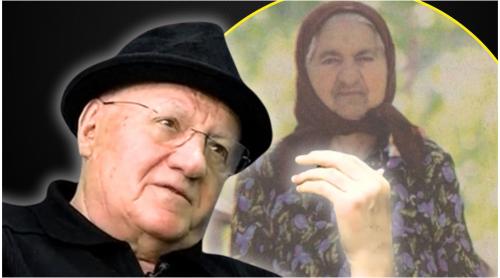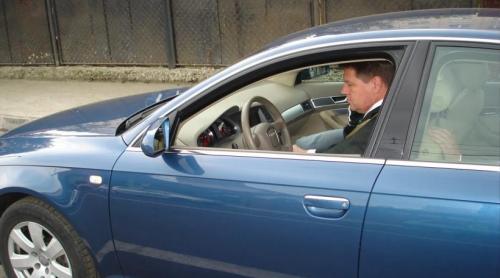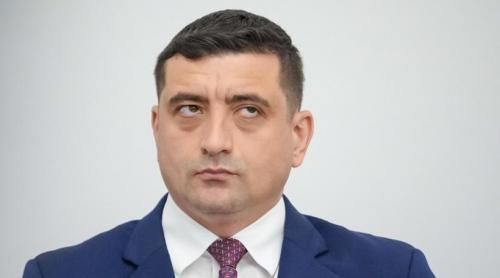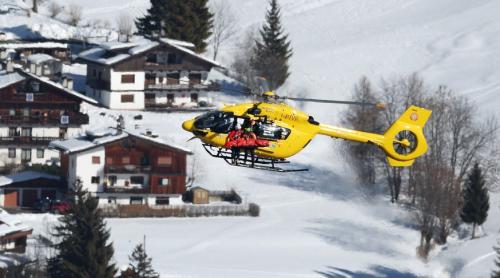
The German ambassador to Bucharest, Wilfried Gruber, explained in an interview to Jurnalul National, which are the priorities for the new Executive in Berlin and their likely impact on the bilateral relations with Romania, as well as the German Governmentâs view on Romaniaâs integration into the European Union.
Jurnalul National: Angela Merkel officially took office in Germany. What should we expect next? A continuation, a radical or a subtle change of the former policies conducted so far by the Greens and the Social-Democrats?
Wilfried Gruber: Two big political parties make the current Executive, but this is not new to German politics. In the late â60s we had such a federal government, and alliances of the two parties - CDU and SPD - also lead the Lands, like those in Brandenburg or Bremen, for instance. Therefore, we have the experience of an alliance government.
As for its policies, the Federal Government will apply the principle of continuity, with some new nuances, of course.
It is significant that the first visits abroad Chancellor Merkel paid were in Paris, Brussels and London.
The German-French partnership will be an important feature of our foreign policy, while the relationship with London will matter not only because Great Britain holds the current EU Presidency, but also because it is an important player in European politics.
In Brussels, Chancellor Merkel met the NATO Secretary General and representatives of European institutions: Jose Manuel Barroso, head of the EU Commission, Josep Borrell, Speaker of the EU Parliament, and Javier Solana, the High Commissioner in charge with EU foreign relations. Germany wants to demonstrate that EU will make the main framework of its foreign policy.
Domestically, the coalition government wants to take steps for adapting the policies to the new challenges: global competition and population ageing. Reforms will focus mainly on the health system, the job market, the policies targeting the family, the research and education systems.
JN: Are there any new political alliances to be forged in the future?
WG: We do not envisage forging alliances to combat other alliances. Germanyâs foreign policy is bases on two main pillars: the NATO and the EU, as a means towards the end of terminating the age of alliance - counter-alliance type of foreign policies.
True, Germany has target driven, temporary alliances, like the current one it shares with The Netherlands, Sweden, Great Britain and Austria regarding the EU budget, to which all these countries contribute the largest shares.
On other issues we team up with other countries, like for instance with the Benelux and the North European countries on trade issues.
Germany continues to regard the EU as a political project, where countries come together to share the same political ambition, which is to use their resources in order to influence global politics using a united strong voice alone.
JN: Which is Germanyâs stance on the Bolkenstein Directive, regarding the liberalization of services inside the EU?
WG: Bolkensteinâs proposal puts forth ideas for better circulation of services inside the EU market, which will soon comprise 27 members, from the current 25 member states. The proposal prompted a huge debate and hence it was not yet adopted. Germany has two interests: to maximize benefits flowing from free movement of services, and keeping within certain standards the environment, the health, and the domestic security domains.
Therefore Germany would welcome a Directive which will balance these principles: optimum circulation of services that protects their standards in the country of destination for those services.
JN: What would bring new to German politics this recent "infusion" of politicians originating in the former GDR?
WG: Germany recorded two firsts with electing Ms. Merkel: she is the first female Chancellor and also the first politician from the former GDR to take the top position.
She was the first one to recognize the importance of these two firsts.
A case in point is also the election of Matthias Platzeck - also born and raised in the former GDR - at the helm of the SPD.
The election of these two people is proof of the domestic unification of the country. They bring their personal experience stemming from being brought up into a system that collapsed, adapting to a new political system, and then taking on new opportunities.
They have biographies which cannot be matched by politicians in the West and I think this will change the political debate in Germany.
JN: How do you explain the tense atmosphere, the apprehensions in Romania regarding the election of Chancellor Merkel?
WG: I do not understand this reaction. I truly believe that politicians originating in the former GDR are able to better empathize with the neighboring countries in South-Eastern Europe.
East Germany and Eastern Europe are both 15 years away from their respective communist regimes. Chancellor Merkel experienced the type of change Romania is experiencing too, even though the transformation of East Germany benefited from the strong financial support of West Germany.
The transformation of East Germany also had the perverse effect that many people there felt their institutions and businesses had been high jacked by the Germans in the West.
The same type of feelings may have experienced the Romanians too, with regard to the foreign capital coming here.
Ultimately, integration would mean a shared sovereignty, which in time would prove worthwhile.
JN: Are there any news regarding the ratifying of Romaniaâs and Bulgariaâs accession treaty to the EU?
WG: The CDU and the SPD arrived at a consensus regarding the EU enlargement. Parliamentary approval will depend on the recommendations to be put forward by the EU Commission following the reports in the spring of 2006, which we all whish will be positive ones.
JN: The word so far had been that Parliament will wait for the fall 2005 report; now the term had been postponed till the spring 2006 report will be issued. Are you in fact waiting to see if the EU Commission will recommend the accession of Romania to be postponed?
WG: As a matter of fact, yes. We supported all along Romaniaâs accession to the EU. But in order for its accession to be a successful one the country must be able to fully take part and face all aspects of the EU policies. The country must continue its reforms for its own sake.
Let me give you an example: following the accession, rulings passed in Romanian courts will be valid on German territory too. We expect Romanian courts to operate at the same level of professionalism as those in Denmark or Netherlands or Belgium, for instance. Another touchy subject for Germany is the food security; all European partners must meet the same standards of hygiene and quality in the food industry.
Translation by Anca Paduraru
Citește pe Antena3.ro

















